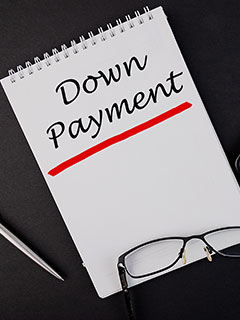CKYC Registry
-
Customer Service Contact us Service request Locate a branch
Find all the help you need
Scan the QR, get our app, and find help on your fingertips

Help CenterSupport topics, Contact us, FAQs and more
-
Login
Are you ready for an upgrade?
Login to the new experience with best features and services
-
Login
Are you ready for an upgrade?
Login to the new experience with best features and services
- Accounts
-
Deposits
IDFC FIRST Bank Deposits
View all Deposits -
Loans
IDFC FIRST Bank Loans
View all Loans - Wealth & Insure
-
Payments
IDFC FIRST Bank Payments
View all Payments -
Cards
IDFC FIRST Bank Cards
View all Cards - Blogs
- Corporate Account
-
Cash Management Services
IDFC FIRST Bank Cash Management Services
View all Cash Management Services - Supply Chain Finance
-
Corporate Lending
IDFC FIRST Bank Lending
View all -
Treasury
IDFC FIRST Bank Treasury
See more details - NBFC Financing
Support topics, Contact us, FAQs and more
- IDFC FIRST Bank Accounts
-
Savings Account
-
Corporate Salary
Account -
Senior Citizens
Savings Account -
First Power
Account -
Current Account
-
NRI Savings
Account -
TASC Institutional
Account -
Savings Account
Interest Calculator
- IDFC FIRST Bank Deposits
-
Fixed Deposit
-
Recurring Deposit
-
NRI Fixed Deposit
-
Safe Deposit Locker
-
FD Calculator
-
RD Calculator
- IDFC FIRST Bank Loans
-
Personal Loan
-
Consumer Durable
Loan -
Home Loan
-
Business Loan
-
Professional Loan
-
Education Loan
-
New Car Loan
-
Pre-owned Car Loan
-
Two Wheeler Loan
-
Pre-owned Two
Wheeler Loan -
Commercial Vehicle
Loan -
Gold Loan
-
Loan Against Property
-
Loan Against Securities
-
Easy Buy EMI card
-
Personal Loan
EMI Calculator -
Education Loan
EMI Calculator -
Home Loan
EMI Calculator -
EMI Calculator
-
Personal Loan Eligibility Calculator
- IDFC FIRST Bank Wealth & Insure
-
FIRST Select
-
FIRST Wealth
-
FIRST Private
-
Mutual Funds
-
Sovereign Gold Bond
-
Demat Account
-
Term Insurance
-
Life Insurance
-
Health Insurance
-
General Insurance
-
Bonds
-
Loan Against
Securities -
Portfolio Management
Service
- IDFC FIRST Bank Payments
-
FASTag
-
Credit Card
Bill Payments -
UPI
-
Funds Transfer
-
Forex Services
-
Pay Loan EMI
- IDFC FIRST Bank Cards
-
Ashva :
Metal Credit Card -
Mayura :
Metal Credit Card -
FIRST Millennia
Credit Card -
FIRST Classic
Credit Card -
FIRST Select
Credit Card -
FIRST Wealth
Credit Card -
FIRST WOW!
Credit Card -
Deals
-
Debit Cards
-
Co-branded Cards
-
Credit Card
EMI Calculator -
FIRST Corporate
Credit Card -
FIRST Purchase
Credit Card -
FIRST Business
Credit Card
- Premium Metal Credit Cards
-
AshvaLifestyle1% Forex₹2,999
-
MayuraLifestyleZero Forex₹5,999
-
FIRST PrivateInvite Only
- Best for travellers
-
MayuraZero ForexMetal₹5,999
-
Ashva1% ForexMetal₹2,999
-
FIRST WOW!Zero ForexTravelLifetime Free
-
FIRST SWYPTravel OffersEMI₹499
-
FIRST Select1.99% ForexLifestyleLifetime Free
-
FIRST Wealth1.5% ForexLifestyleLifetime Free
-
Club VistaraTravelLifestyle₹4,999
-
IndiGo IDFC FIRST Dual Credit CardTravelLifestyle₹4,999
- Max benefits, Free for life
-
FIRST Classic10X RewardsShoppingNever Expiring Rewards
-
FIRST Millennia10X RewardsShoppingNever Expiring Rewards
-
FIRST Select10X RewardsLifestyle1.99% Forex
-
FIRST Wealth10X RewardsLifestyle1.5% Forex
-
FIRST WOW!RewardsTravelZero Forex
-
LIC ClassicRewardsInsuranceShopping
-
LIC SelectRewardsInsuranceShopping
- Reward Multipliers
-
AshvaLifestyleMetal₹2,999
-
MayuraLifestyleZero Forex₹5,999
-
FIRST ClassicNever Expiring RewardsShoppingLifetime Free
-
FIRST MillenniaNever Expiring RewardsShoppingLifetime Free
-
FIRST SelectNever Expiring RewardsLifestyleLifetime Free
-
FIRST WealthNever Expiring RewardsLifestyleLifetime Free
- Rewards & Credit on UPI
-
FIRST Power+FuelUPI₹499
-
FIRST PowerFuelUPI₹199
-
FIRST EA₹NVirtual1% Cashback₹499
-
FIRST DigitalVirtualUPI₹199
-
IndiGo IDFC FIRST Dual Credit CardUPITravelDual cards
- Fuel and Savings
-
FIRST PowerRewardsUPI₹199
-
FIRST Power+RewardsUPI₹499
-
LIC ClassicRewardsInsuranceShopping
-
LIC SelectRewardsInsuranceShopping
- Express and Flaunt
-
AshvaMetal1% Forex₹2,999
-
MayuraMetalZero Forex₹5,999
-
FIRST SWYPEMIOfferMAX₹499
-
FIRST MillenniaRewardsShoppingLifetime Free
- FD Backed rewarding Credit Cards for all
-
FIRST EA₹NVirtualCashback₹499
-
FIRST WOW!Zero ForexTravelLifetime Free
-
CreditPro Balance TransferTransfer & SaveReduce InterestPay Smartly
- IDFC FIRST Bank NRI Forex Solutions
-
Send money to India-Wire transfer
-
Send money to India-Digitally
-
Send money abroad
-
Max Returns FD (INR)
- IDFC FIRST Bank MSME Accounts
-
Platinum Current
Account -
Gold
Current Account -
Silver Plus
Current Account -
Merchant Multiplier
Account -
Agri Multiplier
Account -
TASC Institutional
Account -
Dynamic Current
Account -
World business
Account -
First Startup
Current Account
- IDFC FIRST Bank Business Loans
-
Business Loan
-
Professional Loan
-
Loan Against Property
-
Business Loan for Women
-
Working Capital Loan
-
Construction Equipment Loan
-
Machinery Loan
-
Healthcare Equipment Loan
- IDFC FIRST Bank Business Solutions
-
Payment Solutions
-
Tax Payments
-
Doorstep Banking
-
Point of Sale (POS)
-
Escrow Accounts
-
NACH
-
Payment Gateway
-
UPI
-
Virtual Accounts
-
As per amendment in the Income Tax Rules, PAN or Aadhaar are to be mandatorily quoted for cash deposit or withdrawal aggregating to Rupees twenty lakhs or more in a FY. Please update your PAN or Aadhaar. Kindly reach out to the Bank’s contact center on 1800 10 888 or visit the nearest IDFC FIRST Bank branch for further queries.
-
-
Most Searched
Sorry!
We couldn’t find ‘’ in our website
Here is what you can do :
- Try checking the spelling and search
- Search from below suggestions instead
- Widen your search & try a more generic keyword
Suggested
Get a Credit Card
Enjoy Zero Charges on All Commonly Used Savings Account Services
Open Account Now
You can get useful discounts and reduce the cost of maintaining your vehicle by taking advantage of No Claim Bonus (NCB)
Vehicle insurance provides an excellent opportunity for savings. Premiums may be high at the beginning, but they can decrease significantly thereafter, thanks to the No Claim Bonus (NCB) feature. Although most policyholders know about the No Claim Bonus, they are unaware of its subtleties, which results in problems during renewal. This deep dive will help you understand what is a No Claim Bonus and how to use it to your advantage.
What is a No-Claim Bonus?
NCB (No Claim Bonus) is a benefit available to every motor insurance policyholder. It allows them to receive rewards for not using their insurance. An NCB entitles the policyholder to a discount on their insurance premium if no claims are filed. Upon renewal, it continues for subsequent years.
READ MORE
What is No Claim Bonus in car insurance?
A No Claim Bonus is a discount on the premium for car insurance. You can obtain it by maintaining a claim-free record. If you do not have a claim-free history at the time of acquiring your first vehicle insurance policy, you will not be eligible for an NCB discount. When you renew your insurance for the first time and have not made claims for the previous year, you will be eligible for up to 20% NCB.
How to check the No Claim Bonus in car insurance?
No Claim Bonuses are applicable starting from the second year of insurance coverage and last up to five years in a row. You can get up to 20% discount on your insurance premium if you have not filed a claim in the first year.
The easiest way to calculate the NCB in car insurance is using a car loan calculator. Using the calculator, you can find out about it in seconds.
Do I lose my No-Claim Bonus if I buy a new car?
It is worth noting that the NCB relates to the vehicle owner, not the vehicle itself. If you have NCB discounts on your current car and decide to buy a new one, you can transfer the benefits to the new car. However, if the car owner dies and the car passes on to someone else, NCB cannot be passed on to them. NCB is not transferable from one person to another.
Can a No-Claim Bonus be denied?
The No-Claim Bonus can be refused in two situations. The insurance provider has the right to refuse a No-Claim Bonus if the policyholder makes a claim during the policy period. The second situation when a No-Claim Bonus can be denied is when there is a gap of more than 90 days between insurance periods, calculated from the former insurance's expiration date. The user must extend their vehicle insurance coverage within 90 days of the previous policy expiration.
What causes NCB termination?
No Claim Bonus (NCB) termination happens when a policyholder makes an insurance claim. NCB rewards you for claim-free years, but making a claim resets it to zero, terminating the bonus. Once the No-Claim Bonus facility terminates, you won’t receive any benefits on your insurance premiums.
How to check NCB in car insurance?
To check your No Claim Bonus (NCB) on car insurance, follow these steps:
1. Contact your insurance provider or visit their website.
2. Provide your policy details and personal information.
3. Request an NCB certificate or check your policy documents for NCB information.
4. Review the certificate or policy to verify the accumulated NCB percentage.
5. Ensure accuracy and contact your insurer for any discrepancies or queries about your NCB status.
How does the NCB work in car insurance?
A No Claims Bonus (NCB) in car insurance rewards responsible and claim-free driving. It encourages policyholders to drive safely and maintan their four-wheeler well. Here's how it works:
1. Accumulating NCB:
For each claim-free policy year, you earn an NCB percentage, usually starting at 20% and increasing annually, up to 50%.
2. Transferable benefit:
NCB is transferable when you change your car or insurer. You can carry your earned NCB to the new policy, reducing your premium.
3. Claim impact:
Making an insurance claim resets your NCB to zero. So, if you avoid claims, your NCB builds up over the years, leading to lower premiums.
4. Protecting NCB:
Some insurers offer NCB protection, which allows a specific number of claims without losing your bonus.
NCB is a cost-saving benefit that rewards safe driving and reduces car insurance premiums.
Benefits of No Claim Bonus in car insurance
In addition to its numerous advantages, No Claim Bonus (NCB) in car insurance is a valuable incentive for policyholders. Here are the benefits explained.
- Premium reduction: NCB significantly reduces your car insurance premium, which can lead to substantial savings over time.
- Cost-effective renewals: Each claim-free year adds to your NCB percentage, resulting in even lower premiums during policy renewals.
- Incentive for safe driving: NCB promotes responsible and cautious driving behaviour, reducing the frequency of accidents and claims.
- Transferable: You can transfer your NCB when switching insurers or purchasing a new vehicle. This flexibility ensures you can enjoy the discount continuously.
- Accumulates over time: NCB accumulates annually, with the potential to reach up to 50% discount, providing long-term financial benefits.
- NCB protection: Some policies offer NCB protection, allowing a specific number of claims without affecting your bonus, safeguarding your discount.
- Encourages claim avoidance: As policyholders strive to maintain their NCB, they are more likely to pay for minor damages themselves instead of making small claims, which keeps premiums stable.
- Higher savings for experienced drivers: Experienced drivers who have accrued NCB over several claim-free years can enjoy substantial premium reductions, making insurance more affordable.
What is NCB protector in car insurance?
In car insurance, an NCB (No Claim Bonus) protector is an optional add-on that safeguards your accumulated NCB percentage even if you make a certain number of claims during the policy term, preventing its reduction to zero.
How to transfer NCB to a new car insurance policy?
Transferring your No Claim Bonus (NCB) to a new car insurance policy is a straightforward process. Here's a step-by-step guide:
Step 1:Contact your current insurer:
Inform your current insurer about your intention to switch to a new car or insurer.
Step 2:Request NCB certificate:
Ask your current insurer for an NCB certificate. This document will specify your earned NCB percentage.
Step 3:Purchase the new policy:
Acquire a new car insurance policy for your vehicle.
Step 4:Inform the new insurer:
Notify your new insurer about your intent to transfer your NCB. Provide them with the NCB certificate.
Step 5: Verification:
The new insurer will verify the NCB certificate and adjust your premium accordingly.
Step 6: Application of NCB:
Your new policy will reflect the NCB percentage you earned from the previous policy, reducing your premium cost.
Step 7: Continue safe driving:
Maintain a safe driving record to accumulate NCB in your new policy for further premium reductions.
Documents required for NCB transfer
To transfer your No Claim Bonus (NCB), you typically need these documents:
- NCB Certificate from your current insurer.
- New car insurance policy documents.
- Vehicle registration certificate (RC) copy.
- Proof of sale of your old car if you're switching vehicles.
- ID and address proof.
Ensure these documents are accurate and up to date for a smooth NCB transfer.
Having understood the importance of a No Claim Bonus, you should ensure that you are making the most of it. Ensure that your insurance plan offers a No Claim Bonus. You can buy insurance having the No Claim Bonus feature from the IDFC FIRST Bank mobile application. You can customise the policy to suit your requirements and earn maximum benefits.
Another valuable addition to your car insurance would be FIRSTForward, IDFC FIRST Bank’s FASTag. You can enjoy various benefits on individual and corporate vehicles and reduce the time wasted at toll plazas.
Disclaimer
The contents of this article/infographic/picture/video are meant solely for information purposes. The contents are generic in nature and for informational purposes only. It is not a substitute for specific advice in your own circumstances. The information is subject to updation, completion, revision, verification and amendment and the same may change materially. The information is not intended for distribution or use by any person in any jurisdiction where such distribution or use would be contrary to law or regulation or would subject IDFC FIRST Bank or its affiliates to any licensing or registration requirements. IDFC FIRST Bank shall not be responsible for any direct/indirect loss or liability incurred by the reader for taking any financial decisions based on the contents and information mentioned. Please consult your financial advisor before making any financial decision.
The features, benefits and offers mentioned in the article are applicable as on the day of publication of this blog and is subject to change without notice. The contents herein are also subject to other product specific terms and conditions and any third party terms and conditions, as applicable. Please refer our website www.idfcfirstbank.com for latest updates.























